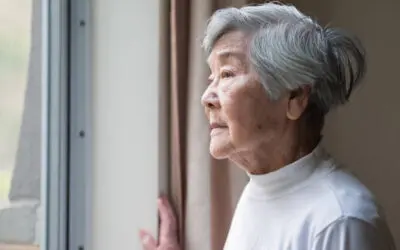Games are more than just a pastime—they’re a way to connect, engage the mind, and spark joy at any age. For seniors, especially, the right board or card game can offer social interaction, mental stimulation, and simple fun in a relaxed and welcoming setting. Whether...
Kim Lima
How to Help Seniors Manage Anxiety and Depression
Aging brings wisdom, resilience, and reflection—but it can also present emotional challenges. Seniors may face anxiety and depression due to factors like declining health, loss of loved ones, social isolation, or dramatic life changes such as retirement. Often...
Packing for Comfort: What Seniors Should Bring on Summer Trips
Summer travel is a cherished tradition for many older adults, offering an opportunity to relax, reconnect with family, and discover new destinations. However, comfort becomes increasingly important with age, especially when navigating the unique demands of travel....
Understanding Cognitive Decline: Early Warning Signs and How to Stay Ahead
Cognitive decline is a gradual loss of mental function that affects memory, thinking, reasoning, and behavior. While some cognitive slowing is expected with age, significant decline is not normal for aging. Detecting early signs and adopting preventative strategies...
What Are the Most Common Disabilities In Seniors?
There is no denying that seniors face many challenges with regard to their physical and cognitive abilities as they age. Common disabilities for seniors include vision impairment, hearing loss, mobility issues, memory problems, arthritis, depression, and anxiety. As...
Financial Safety Tips for Senior Citizens: Advice on Protecting Your Money
Financial safety is of the utmost importance for seniors, especially as they grow older and may become more vulnerable to fraud or exploitation. Many seniors struggle to keep up with the latest financial advice and resources available, so this post aims to provide...
Helping Seniors Thrive: A Guide to Meeting Their Physical, Social, and Emotional Needs
As people age, their needs begin to change. With the elderly population growing at a faster rate than ever before, it is important to understand not only the physical and mental health needs of seniors but also the essential ones that must be met for them to live...
Can Supplements Really Help With Depression or Anxiety for Seniors?
Depression and anxiety are two of the most common mental health conditions in the United States. According to the National Institute of Mental Health, depression affects about 7% of adults in the U.S. yearly, while anxiety disorders affect 18%. While many treatments...
Strategies for Mitigating Depression and Anxiety in Seniors Experiencing Cognitive Decline
For many seniors, navigating the murky waters of cognitive decline can feel like trying to cross a maze in the dark. It's a journey that often brings uninvited guests - depression and anxiety - along for the ride. This unwelcome tag-along can make the path even more...
From Independent Living to Memory Care: Understanding the Continuum of Care
As people age, their care needs evolve. Understanding the range of senior living options for older adults and their families can help ensure the best possible quality of life. The continuum of care includes independent living, assisted living, skilled nursing, and...










